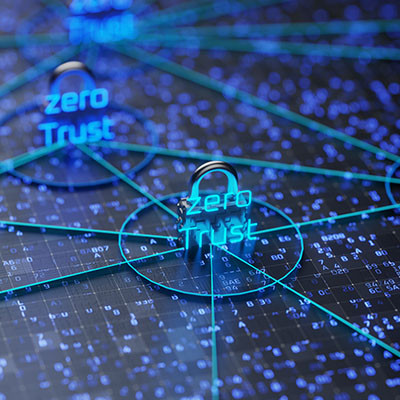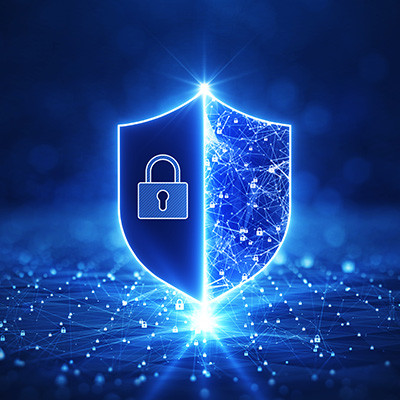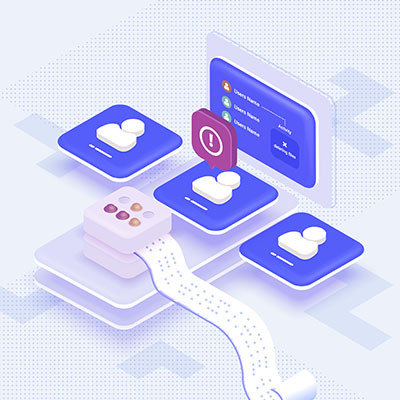When you live a life connected to the Internet, there is always a chance that you will encounter a threat that is disguised just a little too well to be discovered. We wanted to write today about one particular social media threat that we think might have been good enough to fool an unsuspecting user.
BNMC Blog
Cyberthreats are everywhere in today’s business landscape. To thwart this omnipresent issue, organizations invest heavily in cybersecurity solutions and professionals who can get the most out of them. This is made all the more important by threats that are constantly evolving to subvert security measures. Today, we want to discuss some of the most important security tools your business can implement to keep itself as safe as possible from potential attacks.
How far would your business go to protect itself from threats? One of the largest technology companies in the world, Google, is going as far as possible without compromising the productivity of its employees: blocking the Internet entirely. How will Google get away with doing this while retaining efficiency? Read on and find out.
Web-based, online threats pose significant danger for businesses today, which makes it all the more important that you take steps to protect your organization. Google is taking its own protections to the extreme, recently launching a pilot program where the Internet is largely unavailable to its workers.
Of all the things your business needs to worry about, few of them are as complicated as cybersecurity. You need to ensure that your network is protected from threats outside of your business, but you cannot forget the threats that are within your organization as well. A zero trust approach to security can help you effectively protect your organization from attacks that come from all vectors.
A network breach is one of the scariest situations a business owner can encounter. It can rock the foundation of your business to its core, especially if the unauthorized access results in a data breach. There are a lot of things that a business can do to build awareness, set up protections, and create a computing infrastructure that is mostly secure. This week, we will discuss two actions that every business should take in order to protect its data.
The world of network security is vast and complicated, even without all of the misinformation out there about how to keep your business safe and your accounts secure. One particular facet of network security misinformation comes in the form of web browsers, or rather, myths that people think about how they are used which could leave them vulnerable to hacking attacks.
We’re here today to address three of the most common myths about browser security that we think you’ll be interested to know.
Many individuals might have old Google accounts from years ago that haven’t been used in a long time, whether they were simply replaced by newer accounts or simply forgotten about. These accounts can actually be a security challenge and can create more problems than they are worth, and Google is now realizing this. The service is planning to shut down old Google accounts that have been dormant for the last two years.
With so many dangers lurking on the Internet, it’s no small wonder that cybersecurity is an absolute must for all kinds of businesses these days, big or small. It can be challenging to know what you need to do to protect your business, though, which is why we work to promote awareness of security best practices for SMBs. Let’s go over some of the most effective ways you can secure your organization today.
A lot of businesses have been building out more flexible work conditions for their staff. This is mostly due to employee demand grown from COVID-era remote work. As more leeway is given and more people are able to work remotely, businesses have an issue they have to confront: data security in transit.
The more your business depends on its technology, the more problems with cybersecurity can derail all the good things you have going on. Today, businesses are more susceptible than ever to hackers and scammers that want to gain access to their network to deploy malware, siphon information, and more. Let’s discuss four points of emphasis every business needs to secure their network and infrastructure.
The irritating thing about security is that you can implement the best solutions on the market and still find yourself lacking due to one thing: your employees’ actions. If your team isn’t trained to protect your network, then they are adding more opportunities for hackers to infiltrate your systems. Let’s discuss how you can train your team on security best practices.
There’s no question that most of the companies that we interact with nowadays capture and share data. Many of them package them up and sell them to marketing companies that follow users around the Internet. Too many people don’t know how to keep from oversharing their personal information and it can have negative effects on their lives. This week, we thought we’d give you some tips on how to keep your personal data from getting needlessly exposed.
For an organization that is trying to run as efficiently as possible, getting hacked is a complete nightmare. The same goes for an individual who is unfortunate enough to fall victim to the scams and hackers looking to exfiltrate login credentials, and ultimately data, from them. Unfortunately, it is the reality for a lot of people out there. Once you are hacked, however, you need to know what actions to take to ensure that your exposure is significantly reduced.
The question of whether or not you are ready to handle the many challenges presented by cybersecurity is not up for debate; if you don’t have dedicated IT resources allocated toward security, you will fail to keep your business safe when it comes to a head. Here are some ways you can keep your business secure, even when part of your infrastructure is remote.
As a business owner, you know how difficult it can be to stay connected to the office while traveling. Despite being on the road, you’re still responsible for responding to clients, employee troubles, and other important tasks that must be addressed throughout the workday. You don’t want to use public Wi-Fi to access corporate data, so your best bet is to use a Virtual Private Network (VPN).
Would you believe it if we told you that the members of Generation X, Millennials, and Generation Z are more likely to fall for online shopping scams than those aged 60 or over? Well, according to the Federal Trade Commission, the numbers aren’t even close. If you’re under age 60, you’re 86 percent more likely to fall prey to scammers.
Unfortunately, the number of cyberattacks is consistently growing and many of those attacks target business end users. This means that any account that requires a password for access could conceivably be compromised should attackers gain access to its credentials. At BNMC, we promote the use of multi-factor authentication (also known as two-factor authentication or 2FA) to mitigate some of the risk inherent with the use of password-based accounts in business.
In December of 2021, Twitter suffered from a vulnerability related to one of its APIs. In July of the following year, 5.4 million users had their data leaked, as a result of this vulnerability, and put on sale through the black market. Another hacker has recently put this data up for sale, proving that these API attacks are quite problematic not just for big social networks like Twitter, but all businesses.






















